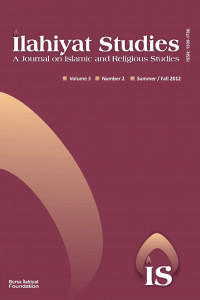Abstract
First paragraph: The Spirituality of Shiʿi Islam: Beliefs and Practices is an indispensable book written by one of the most knowledgeable scholars on Shīʿī Islam. This monumental work illuminates the specifics and details of the Shīʿī tradition in general and Shīʿī mysticism in particular. Although several works have been written on Shīʿism in English, Mohammad Ali Amir-Moezzi’s book stands out as one of the most valuable works on this topic. The Spirituality of Shiʿi Islam is divided into four sections and fourteen chapters, with a bibliography and an index section. In the first section, the author discusses the emergence of Shīʿism and the ancient Iranian conversion to the new tradition. Chapter One presents the origins of the Shīʿī faith and reflects on the expression dīn ʿAlī (the religion of ʿAlī). The author discusses the works of historiographers in which the expression dīn ʿAlī appears. He then highlights the uniqueness of ʿAlī, arguing that the imām was the “only personality from early Islam [apart from Muḥammad] with whom the term dīn is associated” (p. 8). The establishment of the “religion of ʿAlī” results in part from two aspects of ʿAlī’s relationship to Muḥammad: the first through blood ties (nasab) and the second through a marriage alliance (muṣāhara). The author also provides a lengthy discussion on how ʿAlī legitimized his claim to lead the community using the text of the Qurʾān. Notably, the author dedicates a section to examining the pre-Islamic basis of authority to show the continuity between the pre-Islamic era and early Islam in institutions, beliefs, and rituals. The author’s purpose in this section is to show the legitimacy of ʿAlī’s succession to the Prophet by showing that the Arabs “regularly elected their leaders from specific families” (p. 23) and that customs continued in early Islam and were even practiced by Muḥammad himself. ʿAlī’s relationship to Muḥammad, which legitimized his political claim to the succession, prompted some early Muslims to be followers of dīn ʿAlī.
Abstract
The Spirituality of Shiʿi Islam: Beliefs and Practices is an indispensable book written by one of the most knowledgeable scholars on Shīʿī Islam. This monumental work illuminates the specifics and details of the Shīʿī tradition in general and Shīʿī mysticism in particular. Although several works have been written on Shīʿism in English, Mohammad Ali Amir-Moezzi’s book stands out as one of the most valuable works on this topic. The Spirituality of Shiʿi Islam is divided into four sections and fourteen chapters, with a bibliography and an index section. In the first section, the author discusses the emergence of Shīʿism and the ancient Iranian conversion to the new tradition. Chapter One presents the origins of the Shīʿī faith and reflects on the expression dīn ʿAlī (the religion of ʿAlī). The author discusses the works of historiographers in which the expression dīn ʿAlī appears. He then highlights the uniqueness of ʿAlī, arguing that the imām was the “only personality from early Islam [apart from Muḥammad] with whom the term dīn is associated” (p. 8). The establishment of the “religion of ʿAlī” results in part from two aspects of ʿAlī’s relationship to Muḥammad: the first through blood ties (nasab) and the second through a marriage alliance (muṣāhara). The author also provides a lengthy discussion on how ʿAlī legitimized his claim to lead the community using the text of the Qurʾān. Notably, the author dedicates a section to examining the pre-Islamic basis of authority to show the continuity between the pre-Islamic era and early Islam in institutions, beliefs, and rituals. The author’s purpose in this section is to show the legitimacy of ʿAlī’s succession to the Prophet by showing that the Arabs “regularly elected their leaders from specific families” (p. 23) and that customs continued in early Islam and were even practiced by Muḥammad himself. ʿAlī’s relationship to Muḥammad, which legitimized his political claim to the succession, prompted some early Muslims to be followers of dīn ʿAlī.
Details
| Primary Language | English |
|---|---|
| Subjects | Religious Studies |
| Journal Section | Book Reviews |
| Authors | |
| Publication Date | February 21, 2013 |
| Submission Date | June 1, 2012 |
| Published in Issue | Year 2012 Volume: 3 Issue: 2 |


